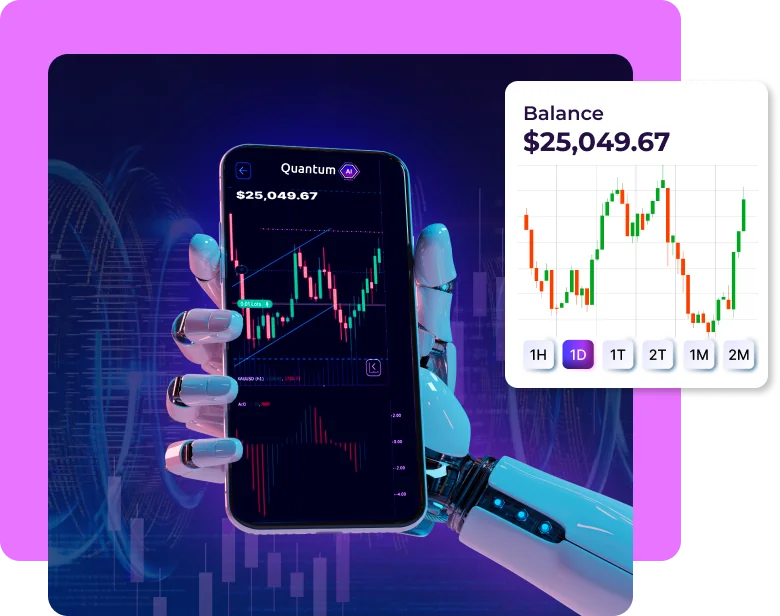Introduction
The world of trading is experiencing a paradigm shift, driven by the rapid adoption of modern technologies. Among these innovations, Quantum AI stands out as a transformative force, promising to revolutionize trading practices with unprecedented computational power and predictive capabilities. In this article, we delve into the impact of Quantum AI and other cutting-edge technologies on trading, exploring their benefits, use cases, and future potential.
The Evolution of Trading Technologies
Trading has evolved significantly over the past decades, transitioning from manual processes to automated systems powered by artificial intelligence (AI). The incorporation of modern technologies has enabled traders to:
- Execute transactions at lightning speed.
- Analyze vast datasets in real time.
- Predict market trends with greater accuracy.
Key Milestones in Trading Technology
- Electronic Trading Platforms: Early 2000s saw the rise of platforms that replaced traditional floor trading.
- Algorithmic Trading: Introduced in the mid-2000s, this enabled automated trade execution based on pre-set criteria.
- Artificial Intelligence: Advanced AI models brought sophisticated predictive analytics and decision-making capabilities.
- Quantum AI: A recent breakthrough, this technology leverages quantum computing to solve complex problems faster than ever.
Understanding Quantum AI and Its Role in Trading
What is Quantum AI?
Quantum AI combines the principles of quantum computing with artificial intelligence. Unlike classical computers, which process data in binary (0s and 1s), quantum computers use qubits, allowing them to perform multiple calculations simultaneously. This capability enhances the efficiency and accuracy of AI models.
How Quantum AI Transforms Trading
- High-Speed Data Analysis: Quantum AI can process vast amounts of market data in real-time, identifying patterns and trends that traditional systems might miss.
- Enhanced Risk Management: By simulating various market scenarios at incredible speed, Quantum AI provides traders with insights into potential risks and optimal strategies.
- Optimized Portfolio Management: Quantum algorithms excel at solving complex optimization problems, enabling traders to create well-balanced and diversified portfolios.
Example: Quantum AI in Action
Imagine a hedge fund using elontrading.it to analyze global stock market data. The system identifies an emerging trend in renewable energy stocks within milliseconds, providing the fund with a competitive edge to act before others.
Other Innovative Technologies in Trading
Blockchain Technology
Blockchain ensures transparency and security in transactions. Applications in trading include:
- Smart Contracts: Automate trade settlements without intermediaries.
- Immutable Records: Maintain secure transaction histories.
Machine Learning
Machine learning models learn from historical data to predict future market movements. Popular applications include:
- Sentiment analysis to gauge market mood.
- Predictive models for price trends.
Robotic Process Automation (RPA)
RPA automates repetitive tasks, such as data entry and report generation, freeing up traders to focus on strategic decisions.
Benefits of Modern Technologies in Trading
- Increased Efficiency: Automated processes save time and reduce errors.
- Improved Accuracy: Advanced analytics deliver precise insights.
- Cost Reduction: Automation lowers operational costs.
- Accessibility: Retail traders now have access to tools once reserved for institutional players.
Challenges and Considerations
While modern technologies like Quantum AI offer immense potential, they are not without challenges:
- High Costs: Quantum computing infrastructure is expensive.
- Complexity: Implementing and managing these technologies requires specialized expertise.
- Regulatory Concerns: Governments are still catching up with the implications of advanced trading technologies.
Future Prospects
The integration of Quantum AI and other modern technologies into trading is still in its early stages. As these tools become more accessible, they are expected to:
- Democratize trading opportunities.
- Enhance global market efficiency.
- Drive innovation in financial services.
Conclusion
Modern technologies, particularly Quantum AI, are redefining the trading landscape. From real-time data analysis to optimized risk management, these innovations empower traders to make smarter, faster, and more informed decisions. As the industry continues to evolve, embracing these tools will be crucial for staying competitive.
Call to Action
Ready to explore how Quantum AI can transform your trading strategies? Stay ahead of the curve by investing in cutting-edge technologies and embracing the future of trading today.
You may also like
-
Best Phone Shop Bedford for All Your Repair Needs
-
Your Website and the AI Era: Why Proactive Maintenance is More Critical Than Ever
-
How MSP Proactive Maintenance Increases Profit Margins by 15-25%
-
Best Hotel Management Software in India
-
Enjoy the Best IPTV Indian Channel Experience: Watch India IPTV Channels Anytime

